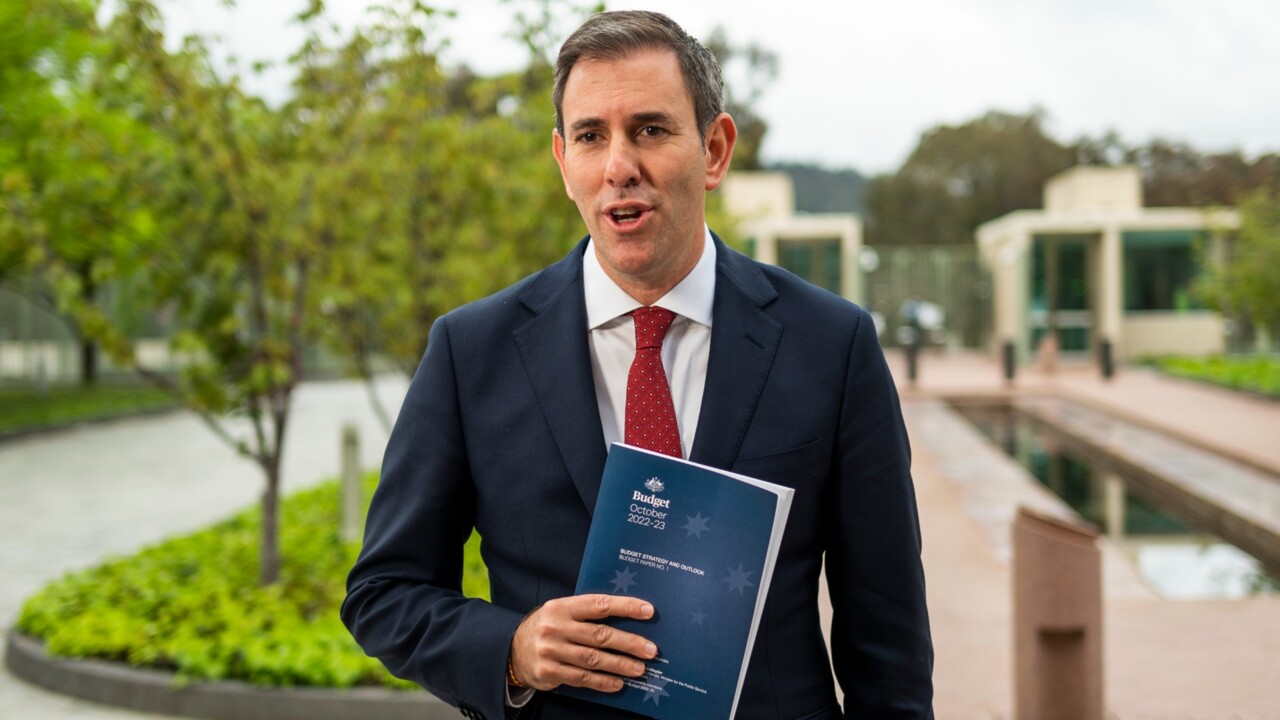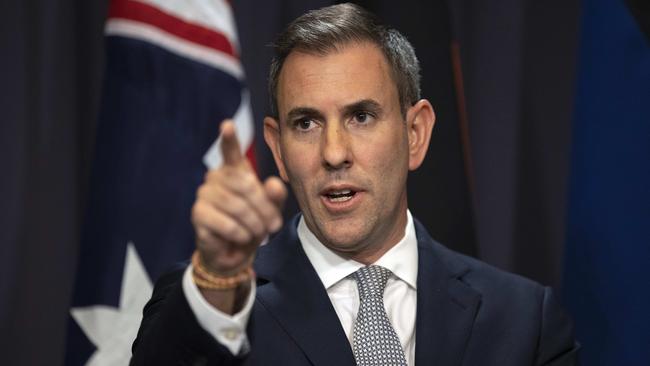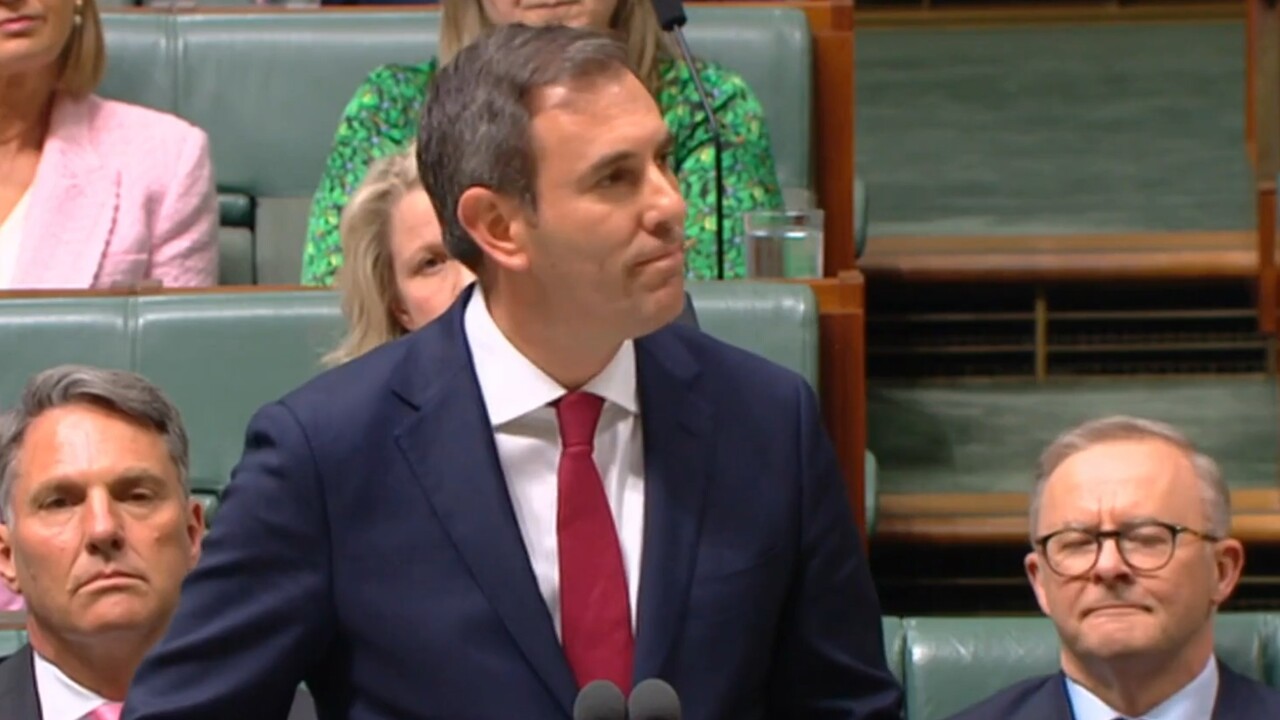Cameron England: Australia will avoid a recession – if the numbers are to be believed
Australia is looking to avoid a recession we don’t have to have. But Cameron England asks: Do the budget figures stack up, or is this a fairytale without a happy ending?

Business
Don't miss out on the headlines from Business. Followed categories will be added to My News.
The federal budget tells us that Australia is expected to continue its gravity defying trick of avoiding sliding into economic recession for the foreseeable future.
Great stuff. But it’s a document with its fingers crossed behind its back – its projections a nursery rhyme we tell ourselves that for the next few years at least, it will be “happily ever after’’.
The budget papers – as they are every year – are peppered with caveats and asterisks that effectively hand Treasurer Jim Chalmers a “get out of jail free” card should external factors disrupt the government’s best laid plans, and its projection for Australia to maintain a modestly-positive rate of economic growth.
Documents show the Treasury Department is now forecasting that the economy will grow by just 1.5 per cent in 2023-24.
The fact that this forecast is a full percentage point below what was expected just seven months ago indicates the fragility inherent in these numbers.
Factor in also that Treasury projections have historically tended to be more optimistic than what eventually transpires, and the confidence that we will avoid a sharper economic slowdown weakens further.

Dr Chalmers has not backed away from the risks the economy faces, and is selling the budget and the fiscal strategy as one which “puts a premium on restraint’’.
Dr Chalmers recognises that “we now confront the prospect of a third global downturn in a decade and a half”, with the war in Ukraine and the possibility of a global recession key risks to the government’s economic forecasts. Delve deeper into Treasury’s assessment of the possible shocks to the economy and you find a laundry list of risk factors, many of which could either punch a hole in government revenues, or require large spending measures.
These include: the possible ongoing impacts of the pandemic; uncertainty associated with the global transition towards net-zero emissions; domestic inflationary pressures; interest rate policies; recessions in major advanced economies; a sharper-than-expected downturn in China, and; further global energy shocks driving up prices.
To be clear, Treasury always flags numerous potential downsides to the budget projections. But this time feels different. No less than the International Monetary Fund is ringing the alarm bells at the moment, warning of a “broadbased” economic slowdown next year.
“The three largest economies – the United States, China, and the euro area – will continue to stall,” it says in its latest world economic outlook.
“Overall, this year’s shocks will re-open economic wounds that were only partially healed post-pandemic.
“In short, the worst is yet to come and, for many people, 2023 will feel like a recession.’’

Reading between the lines of the Treasury papers, the confidence it has in its forecasts for the domestic economy beyond the fairly immediate term appears low, arguably pushing them into the realms of fantasy.
This is not to criticise the aspiration and intent of the budget more generally.
Dr Chalmers has resisted the temptation to offset the current cost-of-living pressures with spending measures or handouts, which would only serve to supercharge inflation, while aiming to chip away at major household costs such as childcare and housing.
Real spending growth is effectively flat at just 0.3 per cent and the Treasurer has stated one of his goals is to limit spending growth, while returning revenue upgrades to the bottom line, rather than spending them.
But on the other hand, there are no courageous moves to cut deep into government spending in a bid to accelerate budget repair.
The IMF warns that now is the time to get the ship in order, because things are only going to get worse over the next couple of years. What the budget documents tell us however, is that at least for Australia we’re hoping that “she’ll be right’’.
It’s a budget built on hope: hope that iron ore prices and demand stay strong, that China doesn’t tip a bucket on us economically, and that the war in Ukraine doesn’t escalate.
Let’s hope the numbers are right, otherwise we’ll soon find out what real budget repair feels like.
Originally published as Cameron England: Australia will avoid a recession – if the numbers are to be believed
Read related topics:Federal Budget 2022





